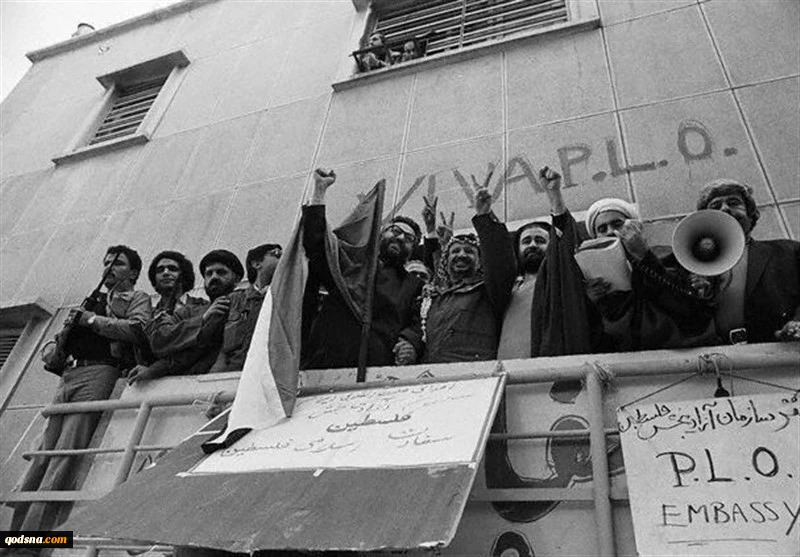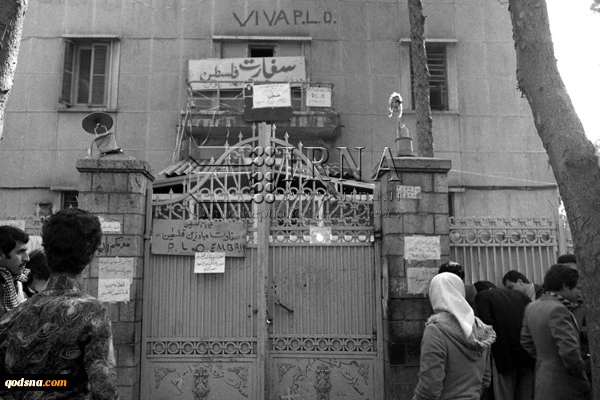19th February, the anniversary
of opening of the first Palestinian embassy

Ahmad Reza Roohallahzad
19th February is the anniversary of an important event in the history of the Islamic Revolution. On 19th February 1979, the first Palestinian embassy in the world was officially opened. This historic embassy was opened in Tehran, the capital of the Islamic Republic of Iran. By doing so, Tehran officially sent the message of the Islamic Revolution to the world that Iran had withdrawn from its alliance with the Zionist regime and that Palestine is a priority for the revolutionary community of Iran.
Palestine has always been one of the most important concerns of the Iranian nation during the Islamic movement and almost all active Islamic factions in the Islamic Movement of Iran until before the victory of the Islamic Revolution viewed the occupation of Palestine and the establishment of a fake Zionist regime as a major problem of the Islamic Ummah. In addition to fighting the dependent and suppressor Pahlavi regime, they pursued the fight against the United States and Israel as other priorities of their struggle.

Sayyid Mojtaba Navvab Safavi, the leader of the Fadaiyan-e-Islam, who was shot dead by the Pahlavi regime two years after the American-British coup on January 17, 1963, was one of the most active fighters before the Islamic Revolution, considered the issue of Palestine as a major issue for the Islamic Ummah.
Imam Khomeini from the very beginning had put the issue of Palestine as an important position of the Islamic Ummah at the forefront of his struggles. Due to this historical background of Palestine in the mind of the Iranian nation, in the evening of 22 Bahman, victory day of the Islamic revolution of Iran, and less than a few hours after the announcement of the overthrow of the American-Zionist backed Pahlavi regime, the revolutionary people went to the Israeli embassy building and took over the building and placed a large banner on it with the title of the Palestinian embassy.
The then Israeli ambassador, Yusuf Harmalin, who remained in hiding in Iran with 33 other Zionists, called on Israeli military attaché General Segf to contact General Qarabaghi, the army chief of staff, and Brigadier General Parvaresh, the deputy military intelligence chief to arrange to protect the remaining Zionists, but the officers said no action was possible. On 13th February, 1979, Bazargan appointed Major General Qarni as the Chief of the Joint Staff of the Army. "Segf" called the head of Martyr Qarni's office to meet with him, but heard only one sentence: "It is better to leave Iran as soon as possible."

Yasser Arafat, the leader of the Palestine Liberation Organization, arrived in Tehran by plane without any prior coordination and visited Imam Khomeini. On February 19, accompanied by the late Seyyed Ahmad Khomeini and martyr Beheshti and several other personalities, he arrived at the former embassy of the Zionist regime in Tehran and the first Palestinian embassy in the world established. He elected Hani Hassan as the first ambassador of Palestine.
With this step, and the subsequent decisions taken by the Islamic System in relation to Palestine (such as the law to support the Islamic Revolution of the Palestinian people and the formation of the Revolutionary Movements Guards, which later served as the Quds Force to support the cause of Palestine liberation and support liberation movements, the decisions that indicates the firm will of Iran in supporting Palestine and confronting the international Zionist movement), Palestine had a strategic depth and for this reason we are witnessing a very serious change in the struggle of the Palestinian people. Now the Palestinian nation have come to believe that they must rely on their own strengths, and that the hope they had to the Arab governments and armies was in fact an illusory hope. The recent Arab agreement with the Zionist regime to normalize ties also proved these regimes from the very beginning have been on the opposite line of Palestine. Inspired by the Iranian Islamic Revolution and confident in the depth of the strategy that the Islamic Revolution created for it, the Palestinian society is now on the path to success and the horizon of victory is very close.
end/ S.SH-60

